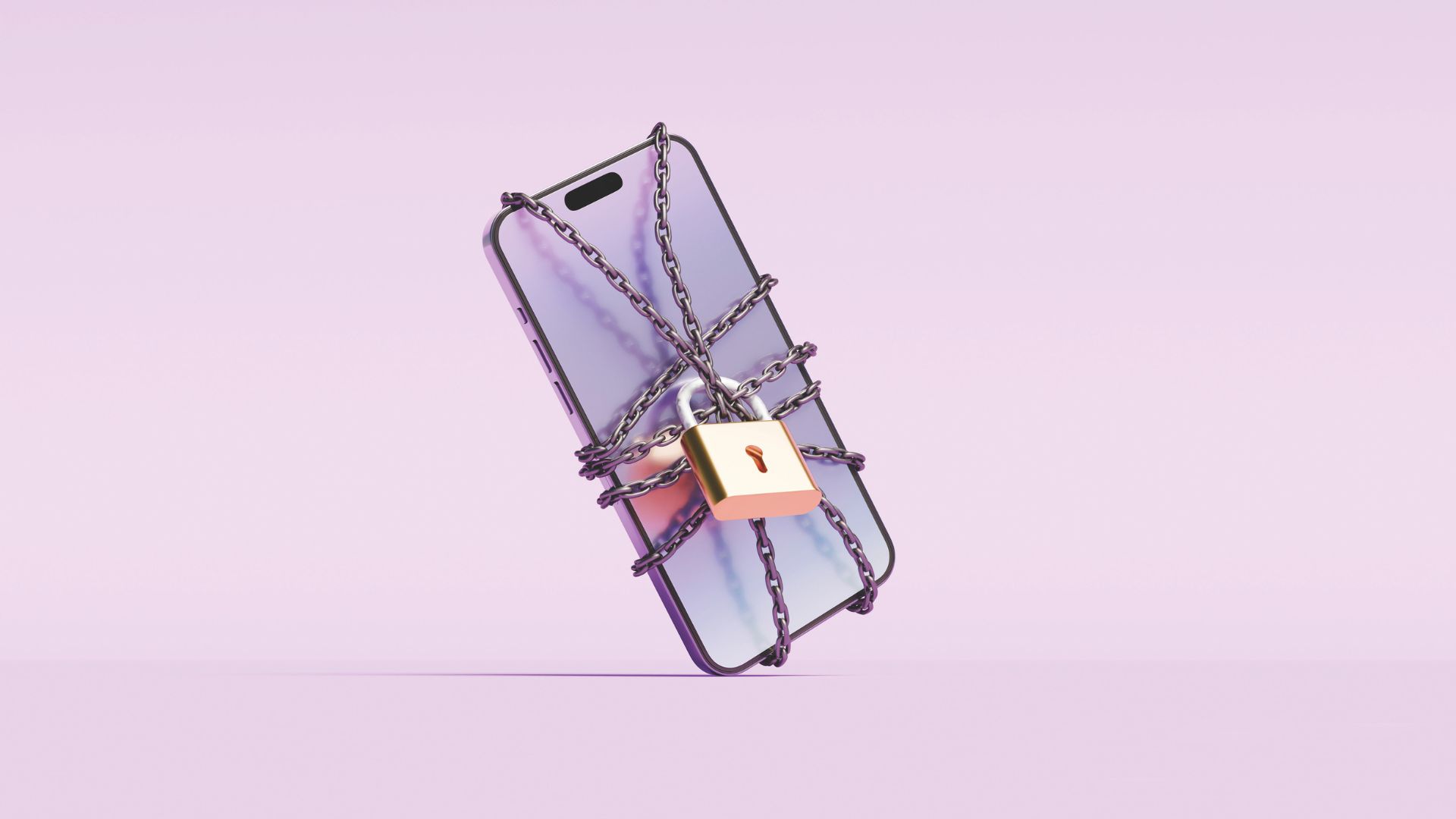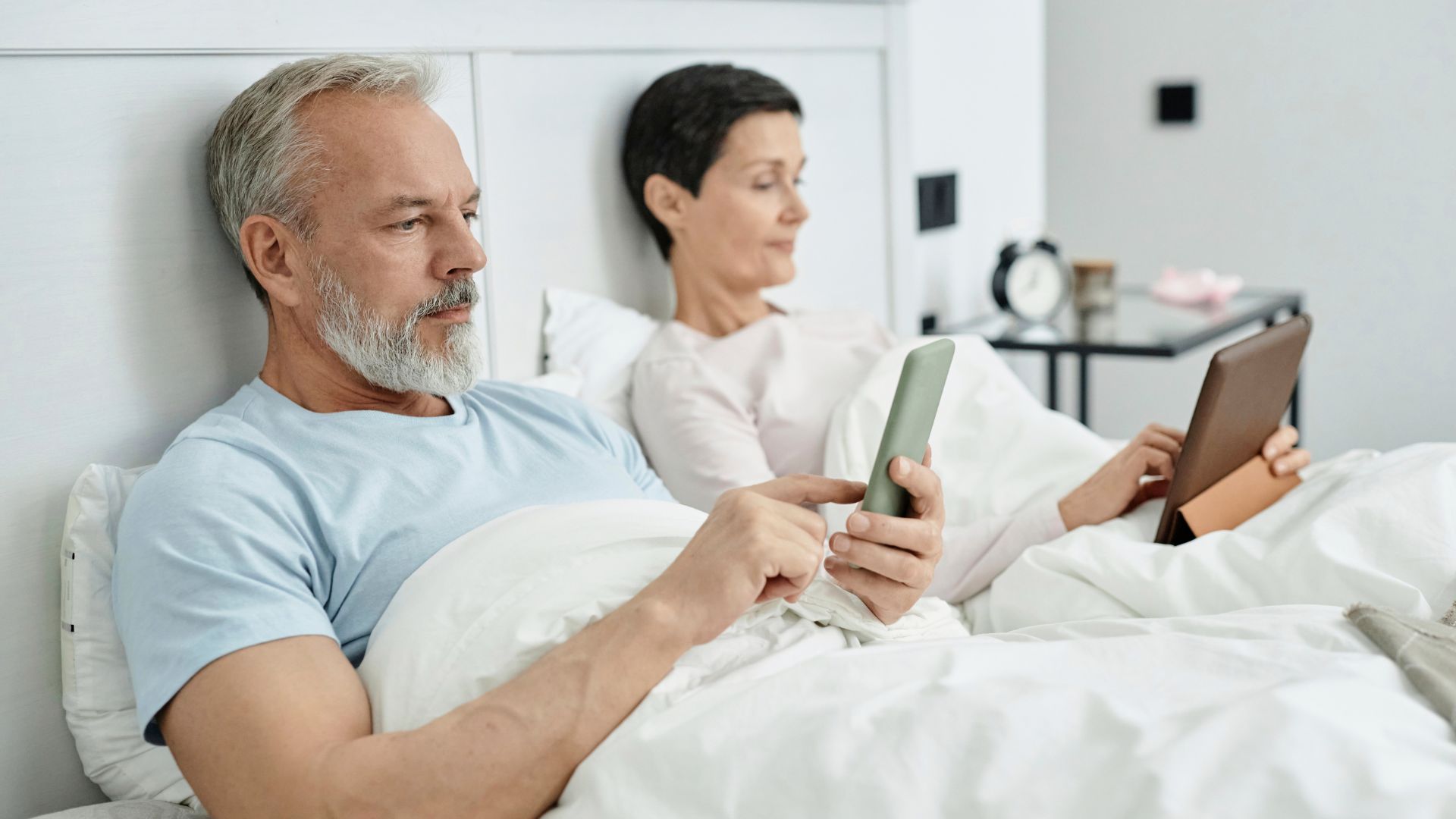
I confess: if ever I leave the house without my phone, I feel naked and vulnerable. When was the last time someone walked into you because they were looking at their phone? For me, it happens multiple times a day, and I am equally guilty of being the person on the other side of this.
Sound familiar? Studies have found the average smartphone owner will click, tap or swipe a whopping 2,617 times a day. Shockingly, 87% of people check their devices within an hour of going to bed or within an hour of waking up. It’s having a huge impact on children – 97% of whom have a smartphone by the age of 12.
Government guidance on phones in schools remains broad, but it’s a contentious topic. Some schools ban phones while others allow pupils to keep them but ban usage during school hours – and many mums set boundaries around smartphone use, too.
A problem for all ages
Our obsession with screens is not just about young people, though – this is a multigenerational problem. Research shows 50% of people feel uneasy about leaving their phone at home. Yet the amount of time we spend on our phones has a massive impact on physical health, memory, sleep quality and mental wellbeing, not to mention on our friendships and relationships.
"The biggest problem is that phones demand attention, and attention plays a key role in connections, communication and relationships," explains Kate Moyle, sexual and relationship therapist.
"The adverse effect of someone not looking up from their phone, or prioritising what’s happening on their screen over what you’re saying, is that you feel less important, less seen and less heard, and this can have a huge knock-on impact in other areas of our relationships."

When it comes to my own marriage, this certainly resonates. My husband George and I start our day by turning over in bed and reaching for our phones. We end it in much the same way. Romantic cuddles before sleep? Forget it. Not when there are endless reels about dogs to watch.
Sign up to our free daily email for the latest royal and entertainment news, interesting opinion, expert advice on styling and beauty trends, and no-nonsense guides to the health and wellness questions you want answered.
Even with the best of intentions, it can be difficult to change an ingrained habit. At the start of this year, I solemnly promised myself that I wouldn’t look at my phone before bed. I had just one successful night before I was back on Instagram. Something needed to change – and quickly.
Spending time offline and in nature has been proven to reduce levels of the stress hormone cortisol by 21%, so I booked George and myself into an Unplugged digital detox cabin on the edge of the New Forest for a three-night stay.
I arrived twitchy and nervous, having spent the car journey frantically messaging people to explain I was going ‘off-grid’, terrified I might miss something.
Science shows that looking at our phones is associated with the release of dopamine, which gives us feelings of pleasure, motivation and reward. This is also linked to addiction – the same way playing on a slot machine may provide a brief burst of enjoyment.
I felt lost when we dutifully locked our phones away. Lying in bed, I was on edge, miserable and felt cut off. I hadn’t realised how conditioned I’d become to seeking out that brief hit of joy and affirmation.
Being more present
On day two, after a long dog walk and a pub lunch, I was feeling brighter. Yes, my poor map-reading ability had led to a fair bit of tension with George, but it was rectified by an afternoon of reading and chatting. We even spent the evening playing games, something we never do.
"Many people report less sex and physical intimacy, likely because a huge number of couples sit together in bed, both on their phones, which is hardly going to cue a context for connection, intimacy or sex," says Kate. "'You’re always on your phone' can be read as code for 'It never feels like you’re with me'."
Kate suggests setting rules such as no phones on the table at meals. One night a week, pop your phones in another room from 8pm, or switch on ‘do not disturb’ 30 minutes before bed or as soon as you get into your bedroom.
"It’s OK not to have the answer to everything at your fingertips"
For George and me, the detox brought a renewed sense of closeness. When you live with someone, it’s easy to neglect time together. But cuddled up in bed, drinking hot chocolate, we had the time and space to talk and listen to each other.
By the third day, I felt freer without my phone. Without the pressure to instantly reply to messages, or to take and post pictures of scenery, I enjoyed the moment more. I had to take a deep breath before switching back on again, to be faced with a barrage of notifications.
So, have I had a revelation since the digital detox? Well, no. But I’m certainly more mindful about the time I spend scrolling. I no longer have my phone on the table in restaurants, and I’m better at prioritising fresh air, bedtime reading and quality time with George.
The digital detox taught me the value of slowing down, savouring the small things and that it’s OK not to have the answer to everything at your fingertips.
I’m calmer, sleep better and feel more connected to those I love – although I still need to work on my map-reading skills.
How to switch off
Try these tips from Hector Hughes, co-founder of Unplugged.
- Stop using your phone as an alarm – If you have to reach for your phone, you’re likely to check emails or social media as soon as you wake. More than 80% of us check our phones within 15 minutes of waking, which primes the brain for distraction the rest of the day.
- Get outside for a tech-free break – Leave your phone at home and go for a walk. If you feel like you need your phone for safety reasons, pop it on airplane mode.
- Control your phone usage – On an iPhone, head to Settings > Screentime and you’ll see a breakdown of your most used apps. In the same area, you can add ‘Downtime’, where you can set certain hours to lock apps from your home screen. There’s also ‘App limits’, which allows you to set daily time limits.
On an Android phone, go to Settings > Digital Wellbeing and Parental Controls. Select the app you want to limit, tap ‘set timer’ and choose your desired time limit. You could also switch off notifications on your phone altogether.

This article first appeared in the June 2025 issue of woman&home magazine. Subscribe to the magazine for £6 for 6 issues.
Could you give up your phone? Let us know your thoughts about smartphones in the comments section below.

Ella is Features Editor at Woman&Home magazine and Woman's Weekly magazine. Previously Deputy Features Editor at Good Housekeeping, Red and Prima, she's an experienced journalist who has interviewed everyone from celebs including Idris Elba and Fearne Cotton to bestselling authors and inspiring women sharing their amazing real life stories.
You must confirm your public display name before commenting
Please logout and then login again, you will then be prompted to enter your display name.

